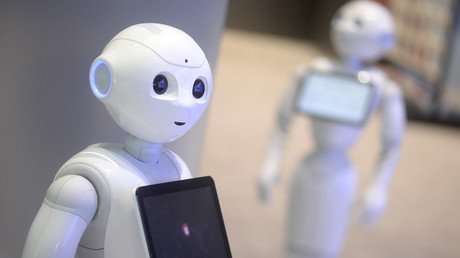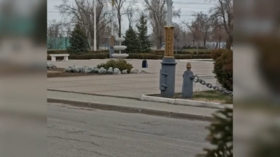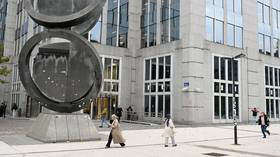Justice by robot: AI ‘judge’ predicts courtroom verdicts with 79% accuracy

Courtrooms could soon be welcoming robots to trials, after computer scientists managed to develop an artificially intelligent (AI) ‘judge’ capable of predicting verdicts with 79 percent accuracy.
The AI computer created by computer scientists at University College London (UCL) and the University of Sheffield used an algorithm to analyze the texts of 584 European Court of Human Rights cases dealing with issues ranging from torture and degradation, to fair trials and privacy.
After scanning the transcripts, the computer was able to learn which specific phrases, facts, and circumstances occurred most frequently when there had been a violation of the Human Rights Act.
Using the information it had gathered, the computer came up with its own verdict for each case – and that verdict lined up with those made by Europe’s most senior judges 79 percent of the time.
While the researchers don’t expect their creation to take charge of important trials anytime soon, they do believe it could assist human judges.
“We don’t see AI replacing judges or lawyers, but we think they’d find it useful for rapidly identifying patterns in cases that lead to certain outcomes,” said study leader Dr. Nikolaos Aletras, a lead researcher at UCL’s department of computer science, in a news release at London’s Global University.
“It could also be a valuable tool for highlighting which cases are most likely to be violations of the European Convention on Human Rights,” he said.
The team also found that the decisions of the judges on the European Court of Human Rights depend more on non-legal considerations than strictly legal arguments – suggesting the court’s judges are more “realists” than “formalists.” This suggests the computer was able to analyze not only purely legal evidence, but also moral considerations.
Study co-author Dr. Dimitrios Tsarapatsanis, a law lecturer at Sheffield University, said the study was the first of its kind.
“Previous studies have predicted outcomes based on the nature of the crime or the policy position of each judge, so this is the first time judgments have been predicted using analysis of text prepared by the court,” Tsarapatsanis said.
Although he is confident that computers can “improve efficiencies of high-level, in-demand courts,” he admitted “we need to test it against more articles and the case data submitted to the court.”
“It should be further pursued and refined, through the systematic examination of more data,” Tsarapatsanis said.
The team’s findings were published in the journal Peer J Computer Science on Monday.















